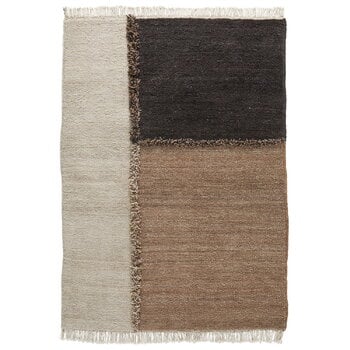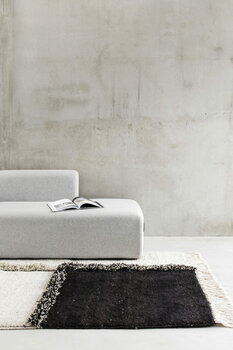The E-1027 rug by Sera Helsinki boasts a beautifully simple and natural design conceived by Finnish fashion designer Samu-Jussi Koski. The wool rug’s minimalist look was inspired by modernist architecture, and its name might ring a bell for fans of architect Eileen Gray: it refers to the architect’s perhaps most famous work, the E-1027 villa in France. The rug’s pattern is created with a combination of two different pile heights: the longer pile acts as an outline for the sections of different colours. The laid-back design is finished with long fringes at both ends.
E-1027 and other Sera Helsinki rugs are handcrafted in Ethiopia using local, hand-wound sheep wool, which is also spun into yarn by hand. The yarn is not dyed or chemically treated, and the shade of the wool may thus naturally vary slightly from rug to rug. The surface of untreated sheep's wool contains the wool's own fat, lanolin, which naturally repels dirt, making wool rugs surprisingly easy to keep clean. Please note that the rugs’ size may also vary by a couple of centimetres, as the rugs are woven or knotted by hand, according to centuries-old traditions.







